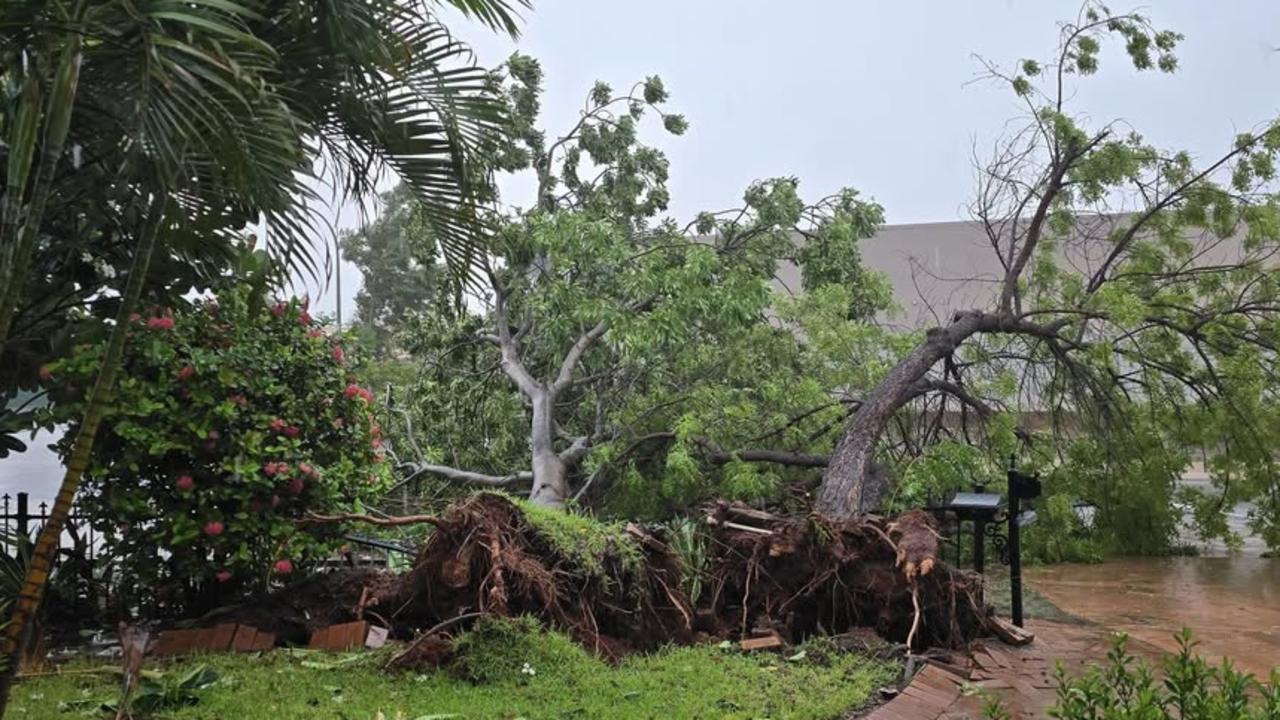Expert panel upgrades Great Barrier Reef rating
UNESCO report finds significant progress was made to address climate change threats to the reef as Tanya Plibersek credits Labor’s environmental policies.
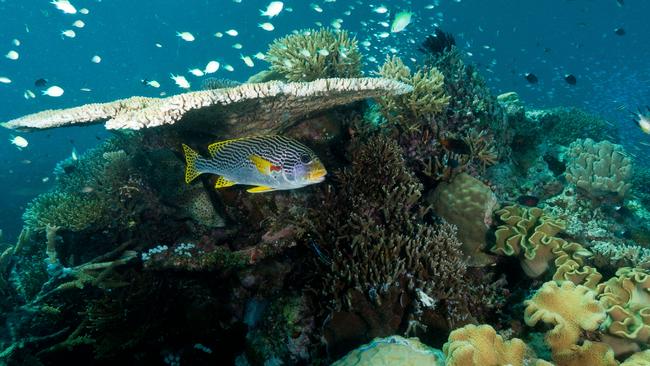
Australia has successfully won a battle to prevent the Great Barrier Reef from being declared “in danger” by the United Nations, with Anthony Albanese claiming Labor’s environmental policies had put the reef on a more sustainable path
The expert panel of the UNESCO World Heritage Committee released a report on Wednesday which found significant progress had been made to address the threats posed by climate change to the reef.
It comes after UNESCO last November recommended the reef be placed on a list of sites in danger amid concern it was at risk of environmental degradation and poor water quality from agricultural run off.
The committee welcomed the federal government’s new legislated targets to cut emissions by 43 per cent by 2030 and said the reef had showed signs of recovery with lower levels of coral heat stress and agricultural runoff.
The Prime Minister said the draft ruling would be “welcome news” for communities in Queensland where the reef supports local economies and jobs.
Mr Albanese said the reef generates $6bn to the Australian economy and supports 64,000 jobs.
“The draft decision cites, to quote ‘significant progress’ being made on climate change, water quality and sustainable fishing, all putting the reef on a stronger and more sustainable path,” Mr Albanese said. “As the draft decision makes clear, Australia’s environmental policies have fundamentally changed under the Labor Government and changed for the better.”
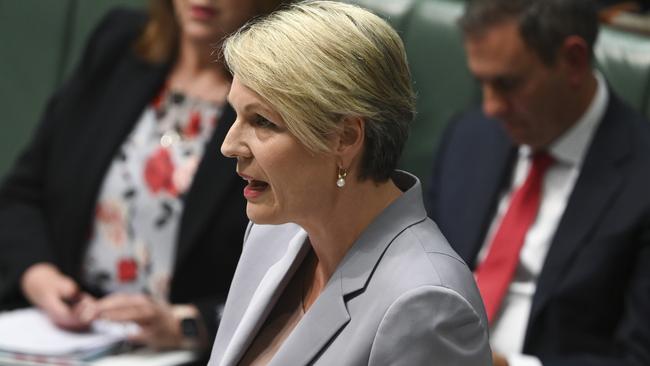
Ms Plibersek said the draft decision showed Australia was serious about protecting the reef and acting on climate change as she attacked former prime minister Scott Morrison’s environmental credentials.
“We will always support the Australians who rely on a healthy environment for their jobs,” Ms Plibersek said. “That’s why I have raised this issue every time I have met with UNESCO and my counterparts on the World Heritage Committee.
“Scott Morrison’s bad policies on climate change and the environment showed the Liberals and Nationals didn’t care about the reef.”
Ms Plibersek has been lobbying her international counterparts at global environmental talks since a draft ruling recommended the reef be categorised as “in danger” was first made last November.
The newly released findings mark the second time in two years that Australia had been forced to fend off an attempt to downgrade the health status of the reef.
Former Coalition environment minister Sussan Ley in 2021 successfully lobbied World Heritage Council members after a draft recommendation attempted to list the reef as “in danger”.
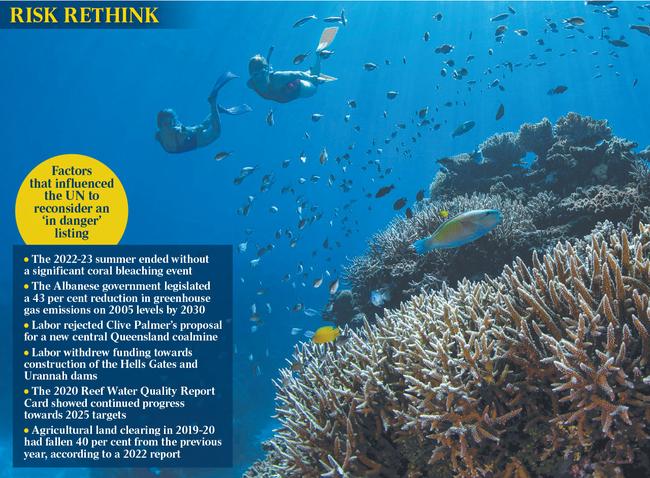
Opposition environment spokesman Jonno Duniam said it was “absurd” that Labor was using the report to launch political attacks on the Coalition government’s record on policies and funding in relation to the reef.
Senator Duniam said the reef was first foreshadowed as in danger under Labor in 2012 when hard coral cover was at its lowest.
“It is laughable that the Albanese Government are laying claim to saving the Reef when it is the Coalition’s hard work that has played such a key role in UNESCO’s decision overnight to keep the Reef off the “In-Danger” list,” Senator Duniam said.
The report released overnight found Australia had made “significant progress” to respond to the threat of climate change including at least $1.2bn in funding to protect the reef and strong commitments to regulate negative farming practices.
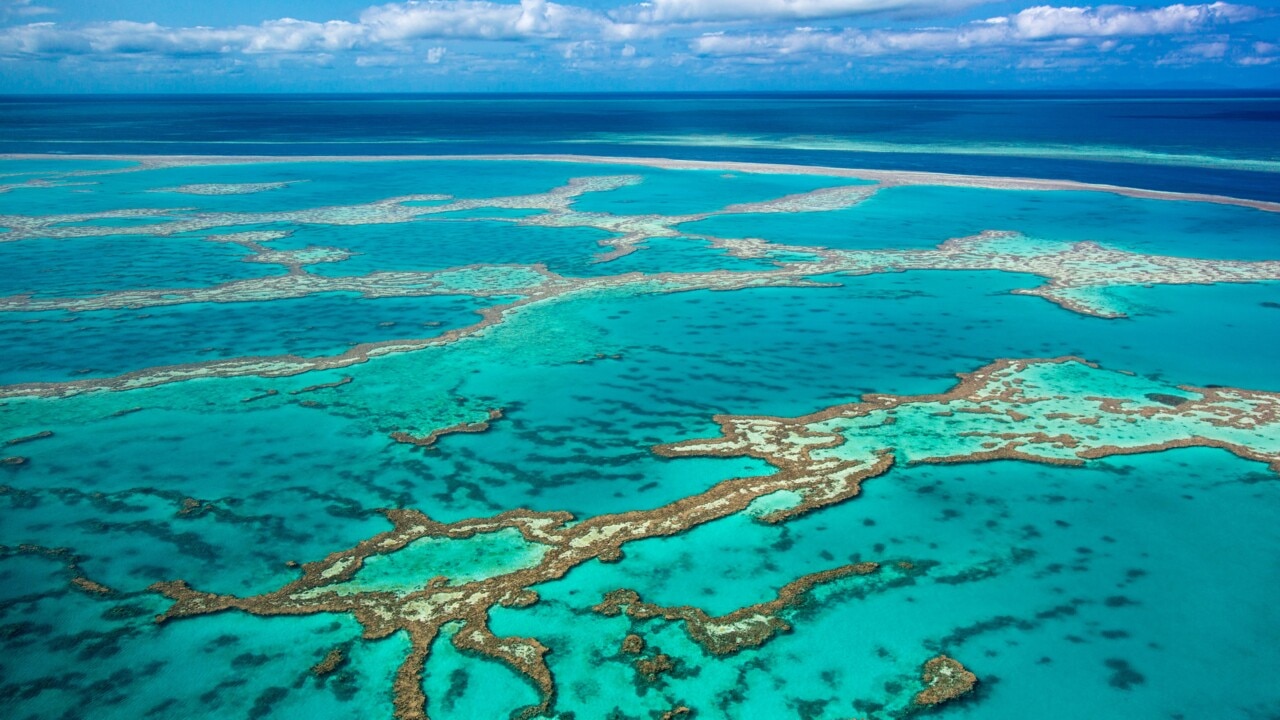
It also welcomed Labor’s decision to cancel Urannah and Hell’s Gate dam given their “likely negative impacts” on water quality in the region.
However, the report expressed concern that progress to improve water quality targets remained slow.
“This progress remains slow, and significant reductions in the levels of sediment and dissolved inorganic nitrogen to meet the 2025 targets remain to be achieved.”
The committee also welcomed the government’s commitment to pursue stronger emissions reductions targets.






